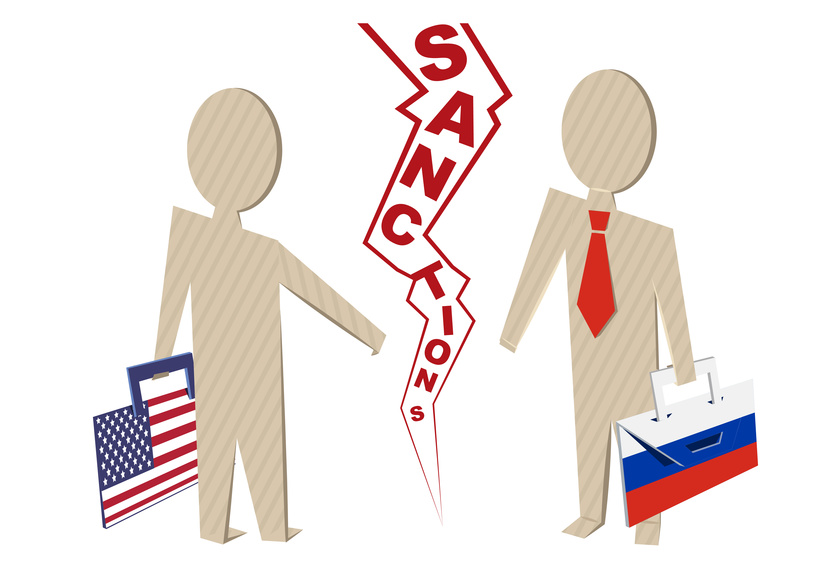Sanctions drafted by the United States senate aim to punish Russian oil companies and banks, but Russian sources insist they will not harm the countrys lubricant industry, which would rely more on local products. However, they warn it could effectively cut the industry off from international markets.
The Aug. 3 draft of the Defending American Security from Kremlin Aggression Act – still not officially published but leaked by the Russian newspaper Kommersant last week – would impose sanctions on investments in any oil industry project by the Russian government or government-affiliated companies outside Russia worth more than $250 million. Businesses would also incur penalties for any participation in new oil projects inside Russia valued above $1 million.
The main role of the bill proposed by Sen. Lindsey Graham, R-S.C., and five of his colleagues is to consolidate previously imposed bills – from CAATSA (Countering American Adversaries Through Sanctions Act) to the Magnitsky Act. According to a news release by Grahams office, the proposed legislations goal is to increase economic, political and diplomatic pressure on the Russian Federation in response to Russias continued interference in U.S. elections, influence in Syria, aggression in Crimea and other activities.
Last summer, the United States imposed the latest package of sanctions in relation to the Russian oil industry. Then last week the U.S. State Department slapped Russia with additional sanctions related to the chemical attack in Salisbury, Great Britain, which eroded the Russian currency ruble to a two-year low.
Combined with a decline in the quality of Russian crude oil reserves, these sanctions spurred general distrust on the future of the countrys oil production and the reliability of the state budget, which led to additional ruble devaluation, according to Artem Mazaev, an independent lubricant industry consultant.
Regarding finished lubricants, the main factors remain the same – the weak ruble in turn will [result in] increased prices for imported products that could trigger a switch by Russian consumers to local products with more affordable prices, Moscow-based Mazaev told Lube Report on Monday.
He is confident that the deteriorated income of the Russian households will reinforce such switching.
The potential threat of a ban on lubricant additives imported from the U.S. may have some impact on finished lubricant production in the short term, but the situation could improve in a while, Mazaev added. International producers of additives used for automotive lubricants have no production facilities in Russia, and it is expected that the countrys blenders would adapt to such restrictions and may switch to additive supply from other sources, he said.
Other observers maintained that the Russian oil industry is resilient to any foreign pressures thanks to huge past investments, numerous tax breaks and a history of government bailouts. State-owned Rosneft, which recently promised a strategic overhaul by 2022 – including in its base oils and lubricant production – posted strong second-quarter net profits last week.
The crushing sanctions pressure is useless. It could not harm the business of Russian lubricant companies, while large-scale foreign investments are not planned in the coming years, said Tamara Kandelaki, head of InfoTek consultancy.
Russian car manufacturers – motivated by the government to produce more cars locally and spurred by the desire to reduce the influence of Forex (currency exchange market) on their production cost – will also continue switching from imported to locally produced lubricants, according to Mazaev.
Automotive companies are expected to choose between lubricants produced by Russian oil companies and local blending plants of international blenders, he continued. This could hamper lubricant imports to Russia, reducing the number of lubricant brands available there as independent blenders in Russia and Belarus replace them.
Mazaev noted that Russia imports significant volumes of base oils. The proposed sanctions will hardly change this situation. The importation of base oils to Russia is not large, and it is a sensitive issue for local blenders, especially for subsidiaries of international blenders like Shell, Fuchs and Total, he said.
Total Vostok, a subsidiary here of French energy giant Total, is preparing to open a blending plant in Russia in the coming months.
Both Kandelaki and Mazaev are confident that the additional sanctions could only make the Russian lubricant market less dependent on outside industry influences and market trends, which in turn could effectively shut it off from the international markets.
It may look good in the short term, but it will inevitably have a negative effect in the longer run, Mazaev said.
Illustration: orensila/Fotolia
